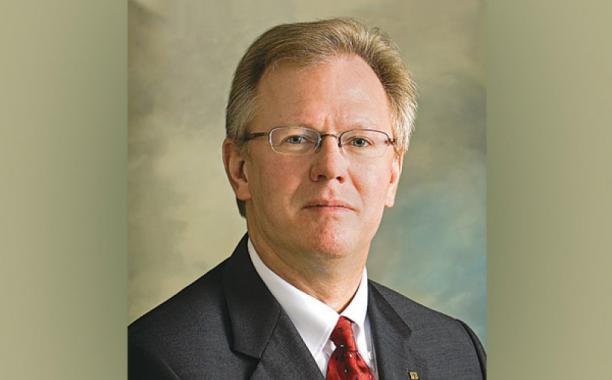
Way forward must include CCUS and the preservation—and growth—of good union jobs and pensions
Once President-elect Joe Biden has been inaugurated on Jan. 20, his administration will begin implementing a range of policies that will shape U.S. governance for the next four years, perhaps longer.
The Biden climate policy, above all others, will directly impact Boilermaker jobs, pensions and the future of our union. It is critical, therefore, that we remain engaged as this policy unfolds and that we strongly communicate our needs and expectations.
In this effort, we are allied with other trade unions, energy companies and those environmental and climate groups that understand the essential role carbon capture, use and storage must play to achieve meaningful—and affordable—climate goals.
What the Boilermakers seek is a realistic solution that considers all low-carbon or no-carbon technologies: renewables, CCUS-enabled fossil fuels, nuclear, hydrogen and other energy sources. We need a diverse and open approach to dealing with climate change, not a slash-and-burn approach that will destroy targeted industries and jobs and upend the economy.
Net zero emissions without CCUS is virtually impossible
The Boilermakers position on CCUS is well established. Carbon capture is the only suite of technologies that can remove carbon emissions from existing sources, including energy production and industries such as cement, aluminum and steel. It is also the only way to remove atmospheric CO2, through direct air capture.
International climate organizations like the United Nations International Panel on Climate Change and the International Energy Agency have made it clear that CCUS must play a key role in achieving targeted reductions in global warming.
Renewables alone cannot achieve those targets.
In its September flagship report, “CCUS in Clean Energy Transitions,” the IEA states that reaching global net zero emissions by 2050 will be virtually impossible without CCUS.
A new study in “Climate Change Economics,” led by the MIT Joint Program on the Science and Policy of Global Change, projects that by the year 2100, carbon capture technology will be applied to almost 40% of world electricity production, with a third coming from coal with CCUS and the other two-thirds from gas with CCUS.
In other words, fossil fuels will still be used at the end of the century globally—even if some countries no longer use them—and carbon capture and storage will be necessary for their continued use.
U.S. must ramp up CCUS, extend 45Q tax credits
If the Biden administration is to achieve its stated goals of a decarbonized power sector by 2035 and a net zero economy by 2050, it must include the full range of technologies that can get us there, including capturing, storing and using carbon emissions from power and industrial sources.
We will need strong government leadership to ramp up CCUS research and development, pilot programs, commercial scale-up and widespread deployment.
The federal government’s current 45Q tax credit program is a step in the right direction, offering attractive financial incentives to develop CCUS projects. That program needs to be extended to provide certainty for investors and owners and allow them sufficient time to begin project construction within the current, narrow deadline.
Other programs to incentivize CCUS projects, such as the USE IT Act (Utilizing Significant Emissions with Innovative Technologies)—which supports research into carbon use and direct air carbon capture—need to be enacted and implemented swiftly, whether in the lame duck session or as a priority under the Biden administration.
Biden must navigate through the hysteria of climate extremists
As we witnessed during the recent presidential election, polarizing arguments over energy issues and climate change raged across the national stage. Climate crusaders pushed their demands to rebuild the U.S. economy into one based totally on renewable energy, eliminating fossil fuels and nuclear energy. Boilermakers are rightly concerned about what the future will bring to our traditional industries and the jobs they provide if the climate crusaders get their way.
The challenge for Biden going into the 2020 elections was, and remains, how to fashion a policy that considers all stakeholders and yet remains workable and can be supported by Congress, industry, unions, the American public and practical environmentalists.
During the Democratic presidential primary, Biden spoke about a “middle ground” that might see the continued use of fossil fuels with carbon capture as well as broader use of nuclear energy. In response, climate change alarmists howled with rage.
The head of the youth climate group Sunrise Movement, Varshini Prakash, went so far as to claim Biden’s approach “will drown entire communities forever, set vast swaths of our country ablaze, kill millions of species, and tear apart the fabric of our global economy and society.”
Others, like Bernie Sanders and Alexandria Ocasio-Cortez, insisted there can be no middle ground.
Forging a climate plan in the midst of such hysteria and intransience is difficult at best. Jason Grumet, president of the Bipartisan Policy Center, put it this way in an Aug. 1, Washington Post article:
“The campaign is trying to reconcile a combination of demands that no political candidate for president to date has been able to successfully navigate. All [Biden] needs to do is blend the ambition of progressives and scientists with the pragmatism of organized labor, the energy industry and moderate Republicans. That’s no easy task.”
Indeed, Biden’s $2 trillion climate plan, as it now stands, addresses a broad range of demands and causes, among them: climate justice, clean power generation, electrified personal and public transportation systems, infrastructure improvements, and energy efficiency in buildings and homes. The plan is strong on creating union jobs and promoting workers’ rights to organize—vital considerations for all unions. And, importantly for Boilermakers and other trades, it recognizes the role of CCUS and nuclear energy in a clean energy future.
As the Biden administration begins to put a new climate policy in place in 2021, some of its features will no doubt change. The pandemic must be faced. Different priorities will arise. Congress will have its say. Climate activists will continue to lobby for the rapid and complete abandonment of fossil fuels.
The Boilermakers and our allies will be there to push hard for CCUS as a sensible and necessary solution to decarbonizing fossil fuels and industrial emissions—a solution that will help avoid destroying good union jobs and wrecking the struggling American economy.












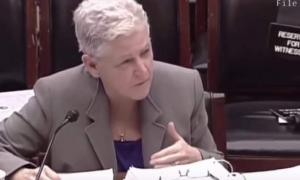
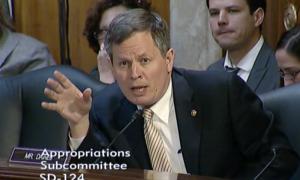


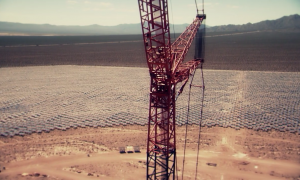
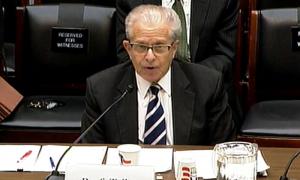
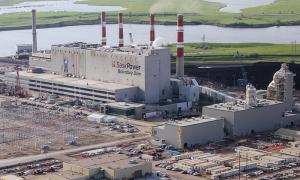
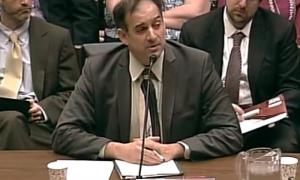
0 Comments